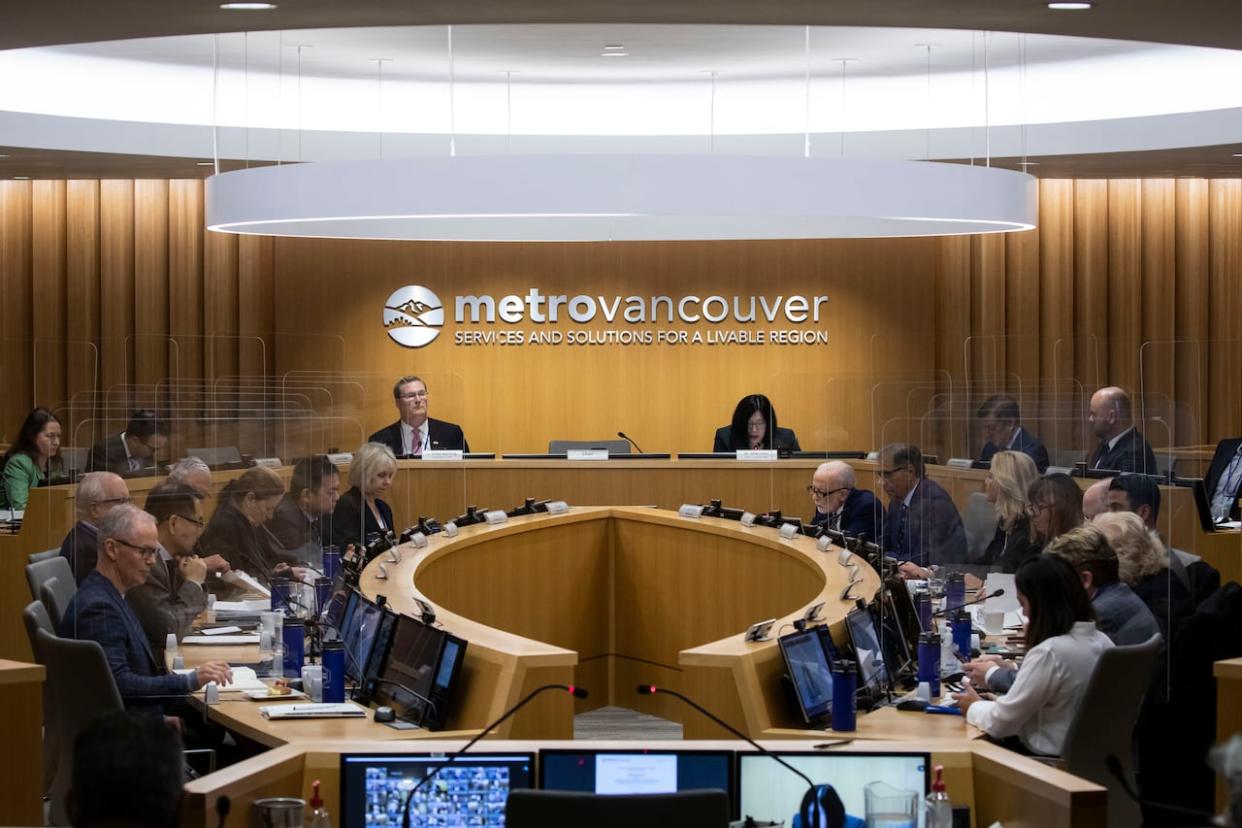Metro Vancouver declines to vote on paid-meetings cap for chair

Metro Vancouver's chair and vice-chair will not be receiving a pay bump for attending meetings after the regional government voted not to act on a proposal that, if passed, would have cost taxpayers an additional $50,000 per year.
At issue in the May 31 vote was changing the cap on the number of standing committee meetings the chair and vice-chair can receive bonuses for — from 18 to 67 annually.
Metro Vancouver board members are paid $525 for attending meetings under four hours, and double that — $1,050 — for meetings that last more than four hours.
Speaking against the change, City of North Vancouver Mayor Linda Buchanan said she was "mystified" by the proposal — which was buried in a larger bylaw amendment — and called it "insensitive" and "tone deaf."
"We are currently facing a financial crisis of escalating capital project costs," said Buchanan, referencing Metro Vancouver's management of the North Shore Waste Water Plant project, where the price tag has grown from $700 million to $3.86 billion.
"Moving forward on this would send the wrong message to the people we represent ... and the issues of affordability the many, many people in the region face, and the many who work full time at minimum wage and barely make this amount of money," she said.
The meeting payments are in addition to salaries paid to the chair and vice-chair.
Current chair George Harvie is paid $105,000 annually by Metro Vancouver and another $174,000 per year as mayor of Delta.
Anmore Mayor John McEwen, vice-chair of Metro Vancouver, receives a salary of $46,000 from the region in addition to his mayor's salary of $53,000.
Metro Vancouver is the regional government for 21 municipalities, one electoral area and one treaty First Nation. It manages utilities like drinking water, liquid and solid waste, and emergency management.


